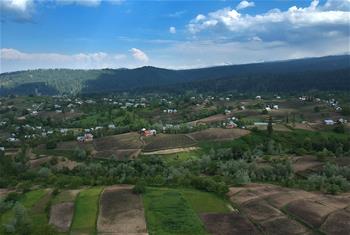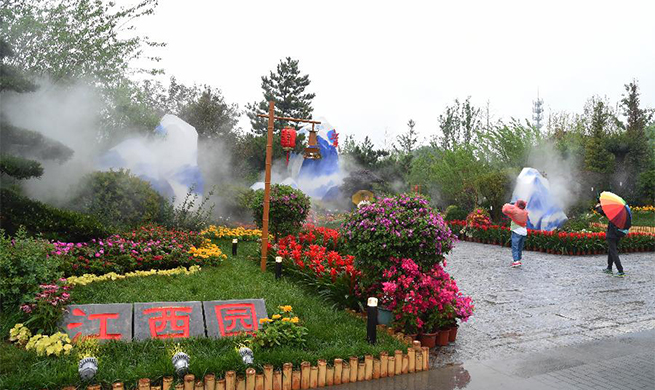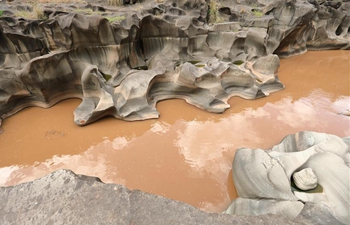BEIJING, June 17 (Xinhua) -- China will prioritize natural vegetation protection in sandy areas in its combat against desertification, a senior forestry official said Monday.
Desertified lands, especially when they are sources of major rivers and source regions of sandstorms, will be put under strict protection, said Zhang Jianlong, director of the National Forestry and Grassland Administration, in a signed article published on the World Day to Combat Desertification and Drought, which falls on June 17 each year.
He said that no damages to the vegetation of China's desertified land will be tolerated, and the country's law on prevention and control of desertification will be strictly enforced.
"Desertification is a severe ecological problem challenging the world, and China has the greatest area of sandy land that affects the largest number of people," he said.
After decades of hard effort, however, China has achieved substantial progress and made significant contributions to the world, the official noted.
The area of desertified land in the country shrinks by an annual average of 2,424 square km, compared to an expansion of 10,400 square km at the end of the last century, official statistics showed.
Inner Mongolia Autonomous Region, home to several large deserts lying at the forefront of China's fight against desertification, for example, has completed an afforestation project that spans more than 666,700 hectares every year.
The decrease of sandstorms in northern China has been credited to its success in taming desertification.
Beijing has seen a steady decline of sand and dust weather in the spring, from 26 days in the 1950s, 5 to 7 days at the turn of the century and to around three days after 2010.
To a large extent, China's fight against desertification has been pushed ahead side by side with its effort to reduce poverty.
Zhang noted that about 25 percent of the poverty-stricken population live in desertified areas. Desertification has become a major constraint for the country to achieve the goal of building a "beautiful China," he said.
"Efforts must be made to address problems, and perseverance is needed if the country wants to make new breakthroughs in the combat against desertification," he said.
Zhang also said that local governments can make full use of the natural resources of desertified areas, such as sufficient sunshine and heat, to cultivate special cultivation such as forage, herbal plants, economic forests and fruits and develop green industries such as biomass energy and desert tourism.
He added that China will share its and learn from others' advanced technologies and strengthen cooperation with Africa and Arabian countries, enthusiastically fulfill its obligations and participate in the establishment of relevant international norms.

















